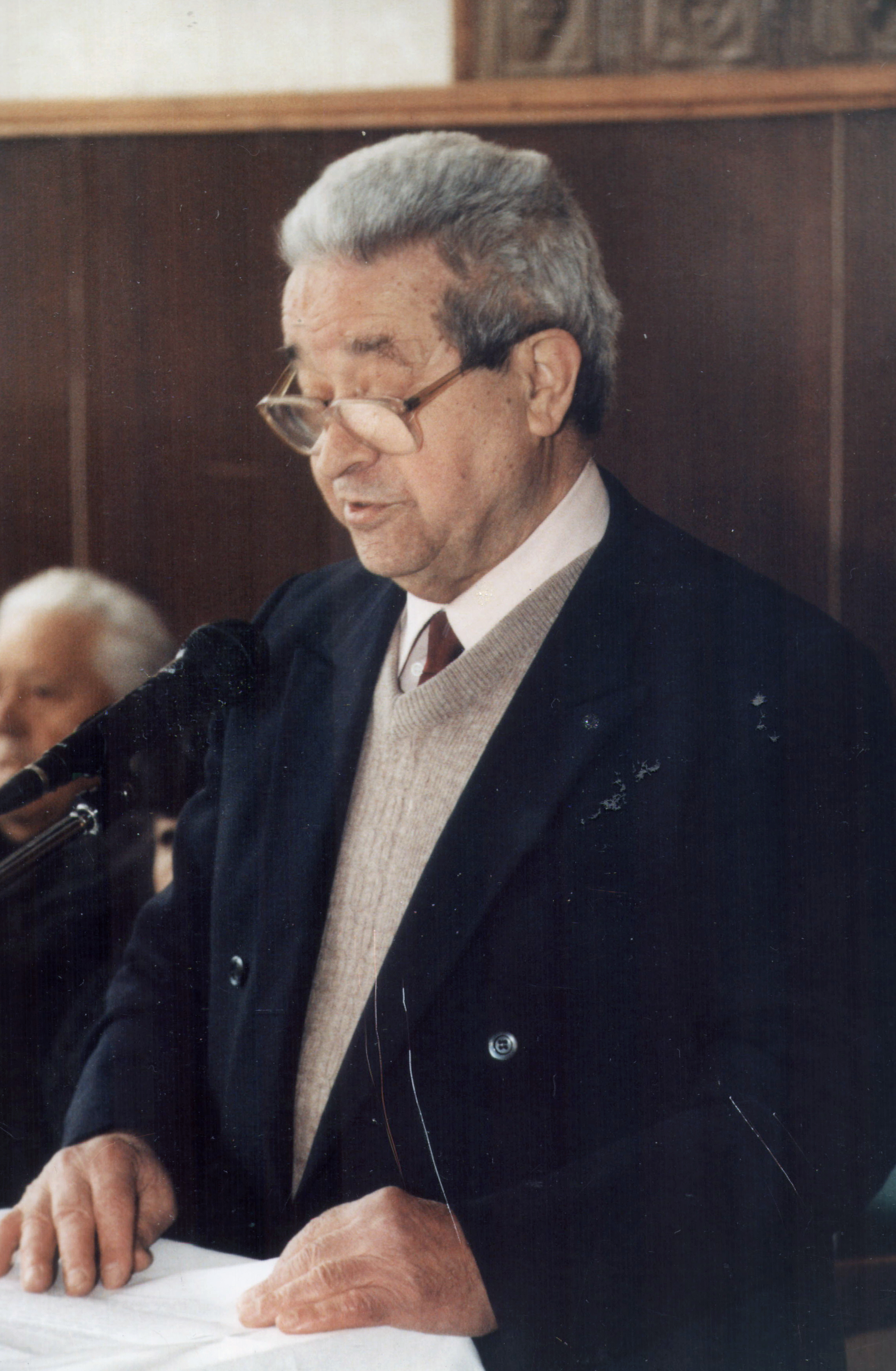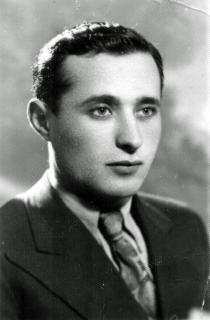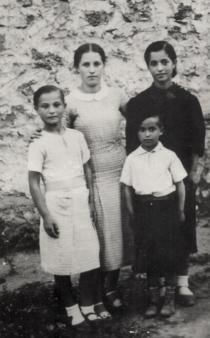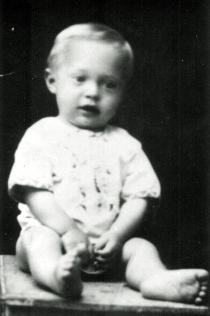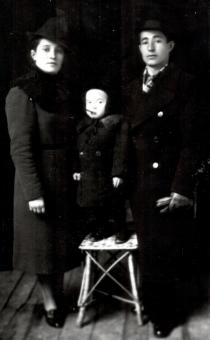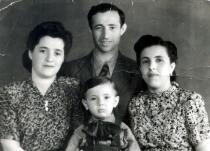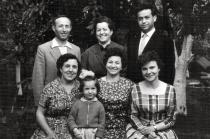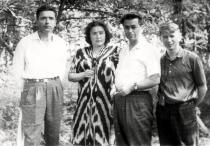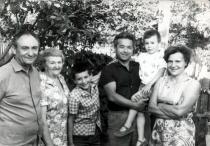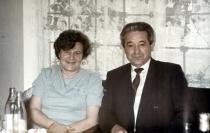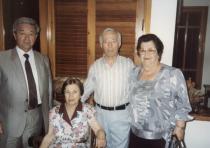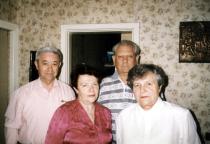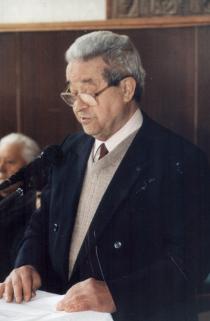This is me opening a Congress of former prisoners of ghettos and camps. This photo was taken in Kishinev in 2001.
After perestroika the Communist Party was forbidden in Moldova and the authorities started altering the history on the wave of anti-communism. There was an issue of annexing Moldova to Romania. Mass media praised Antonescu and were even going to build a monument for him in Kishinev. There were discussions and they even collected money. They called the Romanians, who came here in 1941 with German troops, liberators. Imagine how I felt: these Romanian 'liberators' exterminated my parents, three sisters and my six-year old brother plus thousands of Jews. I think that Gorbachev and Yeltzin placed their own well-being at a higher priority than the well-being of the state. Of course, there were many reasons for the breakup of the USSR, but how could they do it when 76 percent of the population voted for the USSR at the referendum?
The Jewish life began to revive in Kishinev after perestroika in the 1990s. During the period of the USSR, an association of former Jewish and non-Jewish prisoners of ghettos and camps was established. Later, it fell apart and now I'm a member of the Jewish association. Later, Jewish organizations were established in Kishinev: the Jewish cultural center and the community center. Jews began to celebrate Jewish holidays together. The Jewish life particularly revived, when communists obtained the parliamentary majority in Moldova. I think the Jewish situation has improved. It wasn't that good before, when in many areas activities were separated from the rest of the population of Moldova.
When the communists came to power, the Moldovans also started thinking about the victims of fascism. Our local Jewish newspaper, 'Yevreiskoe mestechko', wrote about the local amateur museum of Holocaust in Yedintsy. It is amazing that this museum was established by a Moldovan director of a local school. I think it's important since Jews have always been active citizens in Moldova: doctors, teachers and craftsmen. Now research work has been undertaken in other Moldovan towns where Jews were exterminated. They find the righteous men, who rescued Jews and establish museums like this one.
